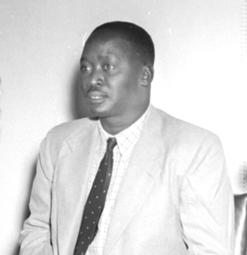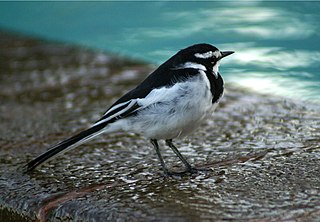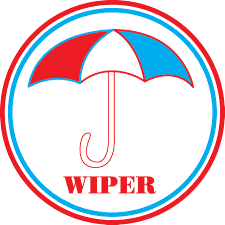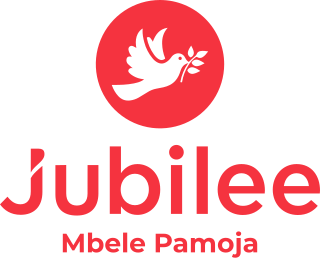 |
|---|
|
Economic schemes |
The Shungwaya Freedom Party was a political party in Kenya led by Ahmed Jeneby. [1]
 |
|---|
The Shungwaya Freedom Party was a political party in Kenya led by Ahmed Jeneby. [1]
Based in Lamu, Kenya, [2] the party was dominated by the Bajuni. [3] In the 1961 general elections it received 0.4% of the vote, winning one seat in the Legislative Council.
It was deregistered in 1967. [4]

The politics of Kenya take place in a framework of a presidential representative democratic republic, whereby the president is both head of state and head of government, and of a multi-party system in accordance with a new constitution passed in 2010.

Swahili, also known by its local name Kiswahili, is the native language of the Swahili people, who are found primarily in Kenya, Tanzania and Mozambique. It is a Bantu language, though Swahili has borrowed a number of words from foreign languages, particularly Arabic and Persian, but also words from Portuguese, English and German. Around forty percent of Swahili vocabulary consists of Arabic loanwords, including the name of the language. The loanwords date from the era of contact between Arab slave traders and the Bantu inhabitants of the east coast of Africa, which was also the time period when Swahili emerged as a lingua franca in the region. The number of Swahili speakers, be they native or second-language speakers, is estimated to be around 80 million.

Daniel Toroitich arap Moi was a Kenyan politician who served as the second president of Kenya from 1978 to 2002. He is the country's longest-serving president to date. Moi previously served as the third vice president of Kenya from 1967 to 1978 under President Jomo Kenyatta, becoming the president following the latter's death.

The Kenya African National Union (KANU) is a Kenyan political party that ruled for nearly 40 years after Kenya's independence from British colonial rule in 1963 until its electoral loss in 2002. It was known as Kenya African Union (KAU) from 1944 but due to pressure from the colonial government, KAU changed its name to Kenya African Study Union (KASU) mainly because all political parties were banned in 1939 following the start of the Second World War. In 1946 KASU rebranded itself into KAU following the resignation of Harry Thuku as president due to internal differences between the moderates who wanted peaceful negotiations and the militants who wanted to use force, the latter forming the Aanake a forty, which later became the Mau Mau. His post was then occupied by James Gichuru, who stepped down for Jomo Kenyatta in 1947 as president of KAU. The KAU was banned by the colonial government from 1952 to 1960. It was re-established by James Gichuru in 1960 and renamed KANU on 14 May 1960 after a merger with Tom Mboya's Kenya Independence Movement.

Jaramogi Ajuma Oginga Odinga was a Kenyan politician who became a prominent figure in Kenya's struggle for independence. He served as Kenya's first vice-president, and thereafter as opposition leader. Odinga's son Raila Odinga is a former prime minister, and another son, Oburu Odinga, is a former assistant minister in the Ministry of Finance.

Kilifi is a town on the coast of Kenya, 56 kilometres (35 mi) northeast by road of Mombasa. The town lies on the Kilifi Creek and sits on the estuary of the Goshi River. Kilifi is capital of the Kilifi County and has a population of 122,899.

The Somali Republic was the name given to the newly independent state of Somalia, following the unification of the Trust Territory of Somaliland and the State of Somaliland. A government was formed by Abdullahi Issa Mohamud and Muhammad Haji Ibrahim Egal and other members of the trusteeship and protectorate administrations, with Haji Bashir Ismail Yusuf as President of the Somali National Assembly and Aden Abdullah Osman Daar as President of the Somali Republic. On 22 July 1960, Daar appointed Abdirashid Ali Shermarke as Prime Minister. On 20 July 1961 and through a popular referendum, Somalia ratified a new constitution, which was first drafted in 1960. The new constitution was rejected by Somaliland.
The Bajuni Islands are an archipelago in southern Somalia. They are situated in the Somali sea off the southern coast of Jubaland, from Kismayo to Ras Kiyamboni.

The Luo of Kenya and Tanzania are a Nilotic ethnic group native to western Kenya and the Mara Region of northern Tanzania in East Africa. The Luo are the fourth-largest ethnic group (10.65%) in Kenya, after the Kikuyu (17.13%), the Luhya (14.35%) and the Kalenjin (13.37%). The Tanzanian Luo population was estimated at 1.1 million in 2001 and 3.4 million in 2020. They are part of a larger group of related Luo peoples who inhabit an area ranging from South Sudan, southwestern Ethiopia, northern and eastern Uganda, southwestern Kenya, and northern Tanzania.
John Gideon Okello was a Ugandan revolutionary and the leader of the Zanzibar Revolution in 1964. This revolution overthrew Sultan Jamshid bin Abdullah and led to the proclamation of Zanzibar as a republic.

Kilifi County was formed in 2010 as a result of a merger of Kilifi District and Malindi District, Kenya. Its capital is Kilifi and its largest town is Malindi. Kilifi county is one of the five counties that make up the Kenyan Coast. The county has a population of 1,453,787 people following the 2019 census which covers an area of 12,245.90 km2 (4,728.17 sq mi).

The Sultanate of Zanzibar, also known as the Zanzibar Sultanate, was an East African Muslim state controlled by the Sultan of Zanzibar, in place between 1856 and 1964. The Sultanate's territories varied over time, and after a period of decline, the state had sovereignty over only the Zanzibar Archipelago and a 16-kilometre-wide (10 mi) strip along the Kenyan coast, with the interior of Kenya constituting the British Kenya Colony and the coastal strip administered as a de facto part of that colony.

The Bajuni people are a Bantu ethnic group who live primarily in the Bajuni Islands of Somalia and coastal areas between the port city of Kismayo and the city of Mombasa in Kenya. They relocated from Shungwaya (Somalia) to their current position due to war with Cushitic groups, who drove them out from their ancestral territory.
The Shifta War or Gaf Daba (1963–1967) was a secessionist conflict in which ethnic Somalis in the Northern Frontier District (NFD) of Kenya attempted to join Somalia. The Kenyan government named the conflict "shifta", after the Swahilli word for "bandit", as part of a propaganda effort. The Kenyan counter-insurgency General Service Units forced civilians into "protected villages" as well as killing livestock kept by the pastoralist Somalis.

The Wiper Democratic Movement–Kenya (WDM-K), formerly Orange Democratic Movement–Kenya (ODM–Kenya), is a political party in Kenya, which originated as a result of the 2005 Kenyan constitutional referendum. It is headed by Kalonzo Musyoka, who ran for president in 2007 and served as the vice-president in the Grand Coalition of Mwai Kibaki and Raila Odinga. He is now a member of the main opposition NASA.
The Sabaki languages are the Bantu languages of the Swahili Coast, named for the Sabaki River. Sabaki is a Pokomo word for Large Fish. In addition to Swahili, Sabaki languages include Ilwana (Malakote) and Pokomo on the Tana River in Kenya, Mijikenda, spoken on the Kenyan coast; Comorian, in the Comoro Islands; and Mwani, spoken in northern Mozambique. In Guthrie's geographic classification, Swahili is in Bantu zone G, whereas the other Sabaki languages are in zone E70, commonly under the name Nyika.
Ashuwei is a Bajuni sea settlement in Kenya's Lamu County.
Bajuni (Kibajuni), also known as Tikulu (Tikuu), is a Bantu language related to Swahili spoken by the Bajuni people who inhabit the tiny Bajuni Islands and coastal Kenya, in addition to parts of southern Somalia, where they constitute a minority ethnic group. Maho (2009) considers it a distinct dialect. Nurse & Hinnebusch (1993) classify it as a Northern Dialect of Swahili.

The Jubilee Party of Kenya was the ruling political party of the Republic of Kenya from 2016 until 13 September 2022. The party was founded on 8 September 2016, following the merger of 11 smaller parties. During the 2017 election, the Jubilee Party secured a plurality of seats in Parliament and the party leader, Uhuru Kenyatta, was re-elected president.